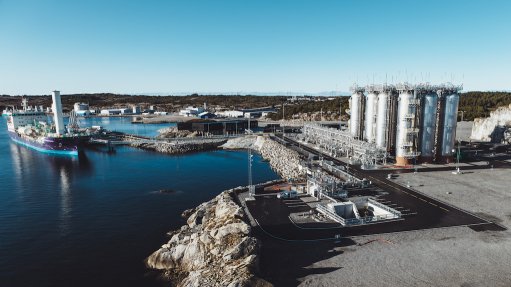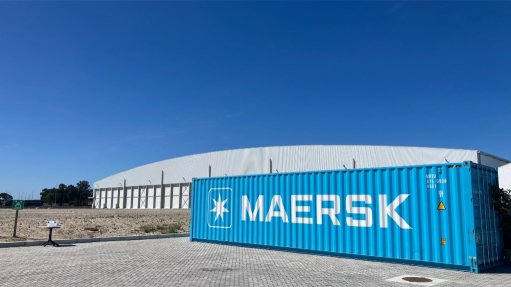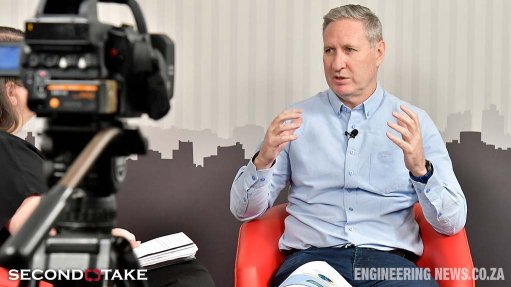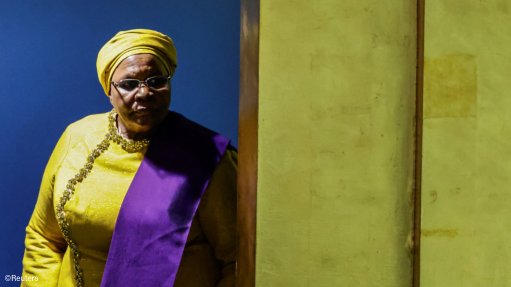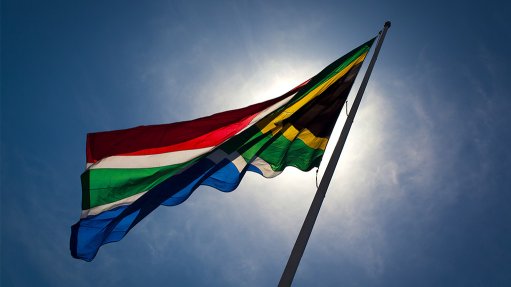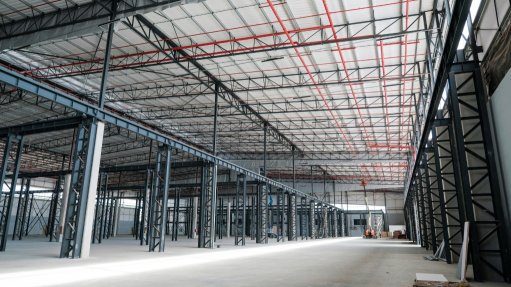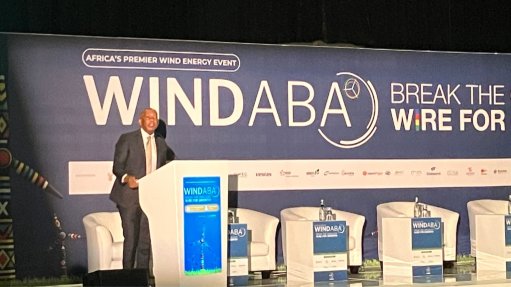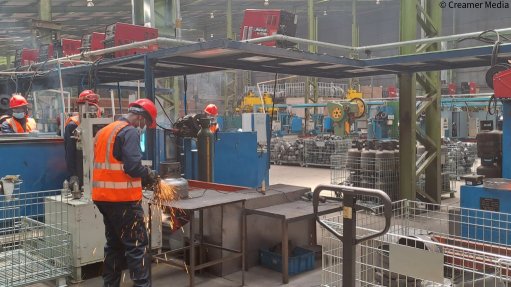ICT infrastructure roll-out a top priority, says DCDT as Gauteng govt outlines ‘digital hub’ ambitions

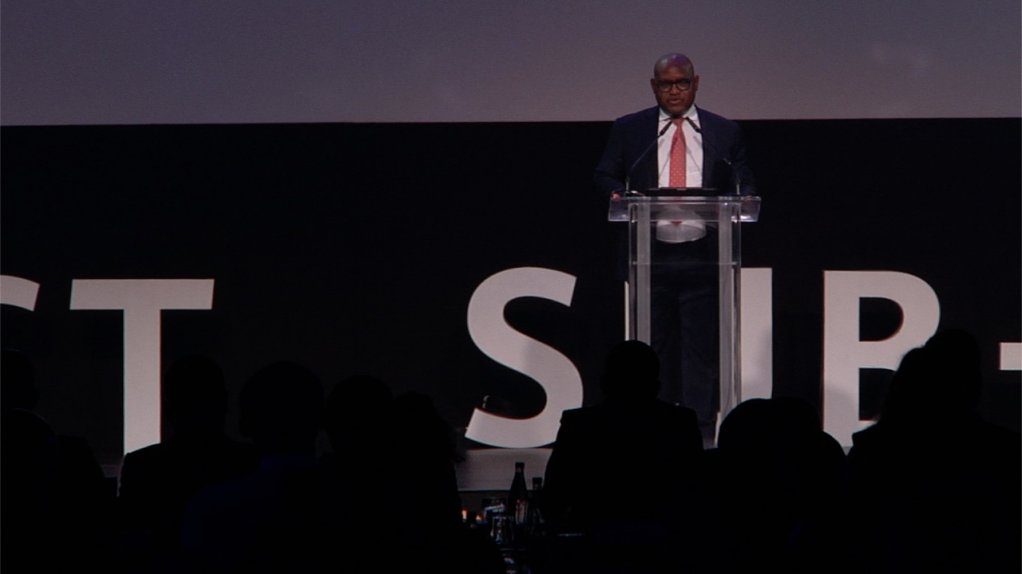
Communications and Digital Technologies Deputy Minister Philly Mapulane, Gauteng Premier Panyaza Lesufi and Gauteng MEC for Human Settlements and Infrastructure Development Lebogang Maile discuss digital technologies and digital development across South Africa
PHILLY MAPULANE Information and communications technology plays a pivotal role in growing the South African and African economies
As the world explores the post-fifth-generation (5G) environment, Africa and other developing regions continue to lag behind in the adoption of digital technologies and the narrowing of the digital divide, says Communications and Digital Technologies Deputy Minister Philly Mapulane.
Speaking at Huawei’s flagship Eco-Connect Sub-Saharan Africa 2023 event in Johannesburg earlier this month, he pointed out that information and communication technology (ICT) plays a pivotal role in growing the South African and African economies.
“5G has made it possible for networks and technology companies like Huawei to revolutionise industrial production and the delivery of goods through the use of high-speed Internet and artificial intelligence (AI),” he said, highlighting Huawei’s piloting of the next-generation 5.5G network capable of speeds that are ten times faster than 5G with uploads of around 10 GB/s.
However, the continent is struggling to deploy the slower fourth-generation network, which is currently at 30% penetration continentwide, as well as facing continued challenges in increasing digital literacy, increasing the uptake of affordable smart devices and bridging the digital divide.
Huawei sub-Saharan Africa regional president Leo Chen said that the wave of digitalisation offers the African continent the opportunity to potentially leapfrog its development. However, there are challenges that cannot be ignored, including insufficient computing infrastructure and difficulties in obtaining new technologies such as cloud and AI; gaps in network connectivity; power shortages; the need to rapidly decarbonise; and a shortage of digital talent.
“We are entering into an era of great challenges and even greater opportunities. To overcome those challenges and to embrace the available opportunities, we should join hands to embrace the intelligent world and grow and succeed together,” added Huawei Enterprise BG president, ICT Infrastructure managing board chairperson and Huawei executive director David Wang.
Mapulane highlighted the critical role of telecommunications and technology companies in expanding network coverage in rural, remote, under- and unserved areas across South Africa, accelerating 5G deployments and providing better and faster digital services, with the aim of spreading the adoption of digital services and narrowing the digital divide.
“We are acutely aware of the reality that our continent is lagging far behind. It is for this reason that as a department, working with ICT sector players, we have made the roll-out of ICT infrastructure and bringing down the cost to communicate top of our priorities,” Mapulane added.
Outlining the activities that the Department of Communications and Digital Technologies (DCDT) has been working towards digital inclusion and the creation of a digital society, he pointed to efforts to ensure affordable, reliable and secure connectivity.
“Through our broadband policy intervention called South Africa Connect, we seek to expand connectivity by rolling out digital infrastructure across the country to ensure 80% of South Africans have secure, reliable and affordable high-speed Internet access in the next three years.”
Access to affordable and quality broadband services and smart digital devices remains important, amid South Africa’s dire economic situation and the ever-increasing cost of living shrinking citizens’ resources.
Further, an inclusive digital transformation and the digital economy require the capacitation of citizens to ensure meaningful use of digital devices and affordable connectivity.
“With the emergence of digital technologies, we would like to see our citizens leveraging digital technologies to address societal problems as well as innovating in income- generating digital products and services,” he said.
In addition, support for small, medium-sized and microenterprises (SMMEs) is critical as they play a very important role in areas of innovation, economic growth and employment.
“In our partnerships with the industry, we would like to see accelerated support to the SMMEs, from creating special targeted packages for them in terms of accessing digital technologies at special rates, providing venture finance for SMMEs, leveraging digital platforms of multinational companies to offer their skills, digital products and services, as well as being given the opportunities to be part of the global value chains of multinationals,” Mapulane commented.
Further initiatives undertaken by the DCDT to create a conducive environment for the digital economy to thrive include a milestone agreement with the broadcasters that will enable government to complete South Africa’s long-delayed broadcast digital migration.
A two-step approach will be taken to switch off the analogue frequencies in two phases, with analogue frequencies above 694 MHz to be switched off at the end of July and the balance by the end of December 2024.
“This approach is accepted to be a win-win approach, as it will enable analogue switch-off progress, release [high-demand] spectrum and allow the broadcasters to recover from post-Covid-19 economic decline and the impact of loadshedding,” he continued.
Further, the department is finalising the Next Generation Spectrum Policy; preparing for the implementation of the Digital Economy Master Plan, which was the first one to be agreed to by industry and public sector partners; published the Electronic Communications Amendment Bill for public comments to address international roaming, competition issues and the cost to communicate; and acceleraing implementation of the recommendations of a Presidential Commission on the Fourth Industrial Revolution (4IR) report, which acknowledged the need for a legislative and policy review.
“The Presidency has given us strict directives to ensure that we finalise, during 2023, the recently published Rapid Deployment Guidelines Policy Direction to the Independent Communications Authority of South Africa in order to allow for the rapid deployment of digital infrastructure in South Africa and allow for co-building and co-sharing agreements to be signed by the domestic carriers in the municipalities where they will also be laying fibre.”
Meanwhile, Gauteng Premier Panyaza Lesufi, speaking at the Eco Connect summit, declared that he wants Gauteng to be the digital hub of South Africa.
“We want to lay the foundation, provide the resources and everything that is needed for us to ensure that we migrate this beautiful province from the mining industry that established it to the new economic power that we will call the digital power,” he said.
“This digital power must create jobs and opportunities and it must not leave anyone behind. It must be capable and ready to bring everyone on board. And we are proud that we have a powerful organisation called Huawei that is walking with us, giving us the guidance and support we need.”
Gauteng MEC for Human Settlements and Infrastructure Development Lebogang Maile added that, through Gauteng’s Grow Gauteng Together 2030 (GGT) programme, the province is driving the adoption of digital technologies to improve the lives and livelihoods of its residents.
Article Enquiry
Email Article
Save Article
To advertise email advertising@creamermedia.co.za or click here
Comments
Press Office
Announcements
What's On
Subscribe to improve your user experience...
Option 1 (equivalent of R125 a month):
Receive a weekly copy of Creamer Media's Engineering News & Mining Weekly magazine
(print copy for those in South Africa and e-magazine for those outside of South Africa)
Receive daily email newsletters
Access to full search results
Access archive of magazine back copies
Access to Projects in Progress
Access to ONE Research Report of your choice in PDF format
Option 2 (equivalent of R375 a month):
All benefits from Option 1
PLUS
Access to Creamer Media's Research Channel Africa for ALL Research Reports, in PDF format, on various industrial and mining sectors
including Electricity; Water; Energy Transition; Hydrogen; Roads, Rail and Ports; Coal; Gold; Platinum; Battery Metals; etc.
Already a subscriber?
Forgotten your password?
Receive weekly copy of Creamer Media's Engineering News & Mining Weekly magazine (print copy for those in South Africa and e-magazine for those outside of South Africa)
➕
Recieve daily email newsletters
➕
Access to full search results
➕
Access archive of magazine back copies
➕
Access to Projects in Progress
➕
Access to ONE Research Report of your choice in PDF format
RESEARCH CHANNEL AFRICA
R4500 (equivalent of R375 a month)
SUBSCRIBEAll benefits from Option 1
➕
Access to Creamer Media's Research Channel Africa for ALL Research Reports on various industrial and mining sectors, in PDF format, including on:
Electricity
➕
Water
➕
Energy Transition
➕
Hydrogen
➕
Roads, Rail and Ports
➕
Coal
➕
Gold
➕
Platinum
➕
Battery Metals
➕
etc.
Receive all benefits from Option 1 or Option 2 delivered to numerous people at your company
➕
Multiple User names and Passwords for simultaneous log-ins
➕
Intranet integration access to all in your organisation









